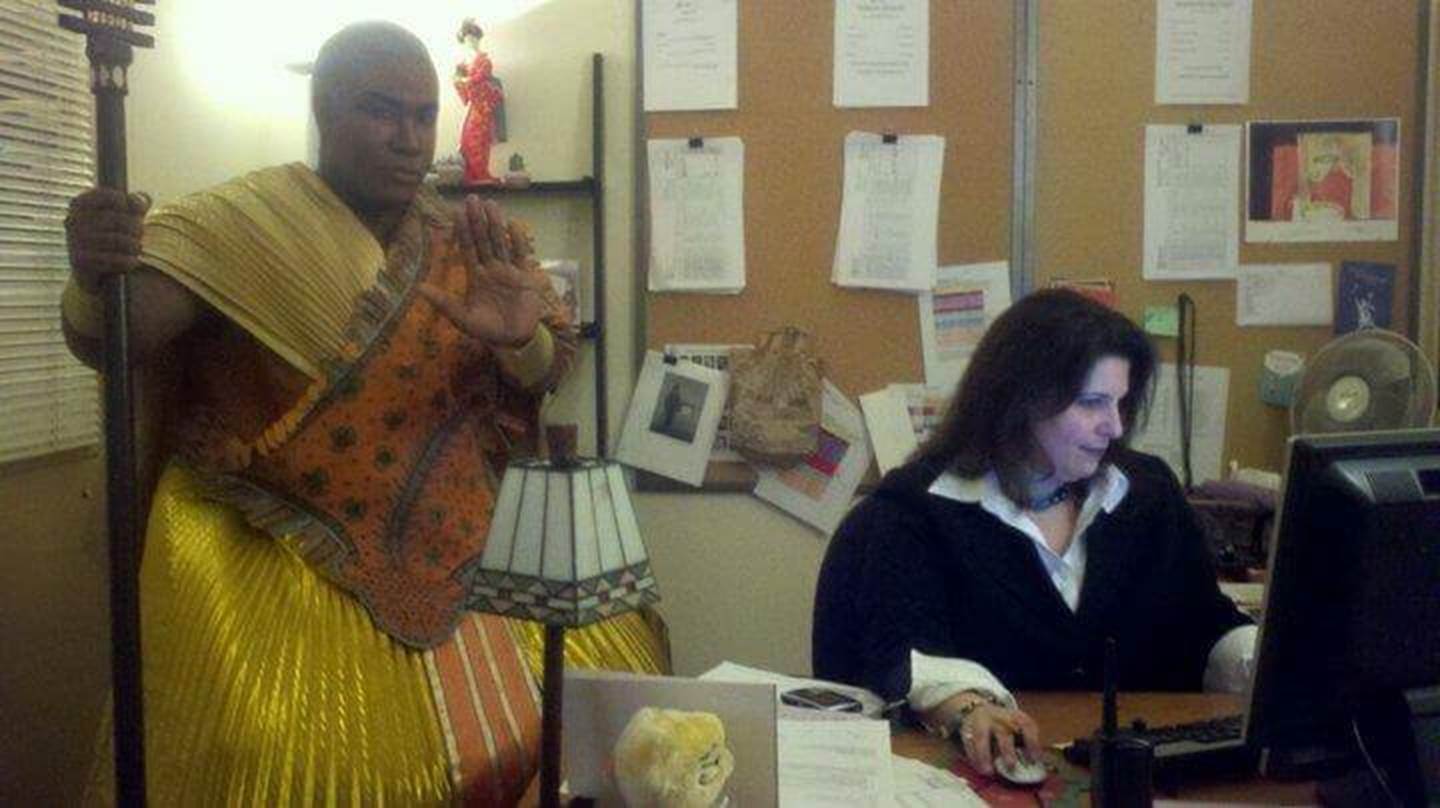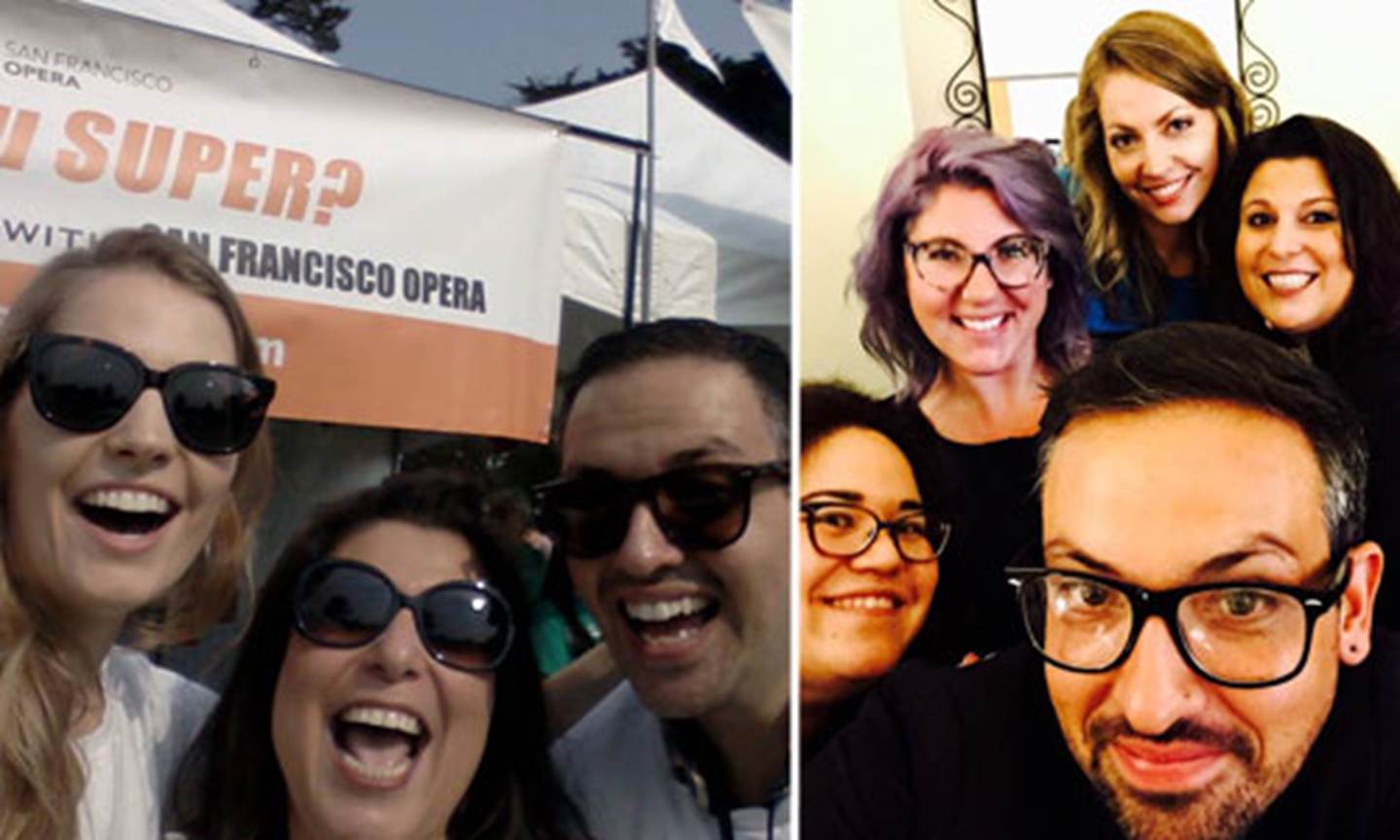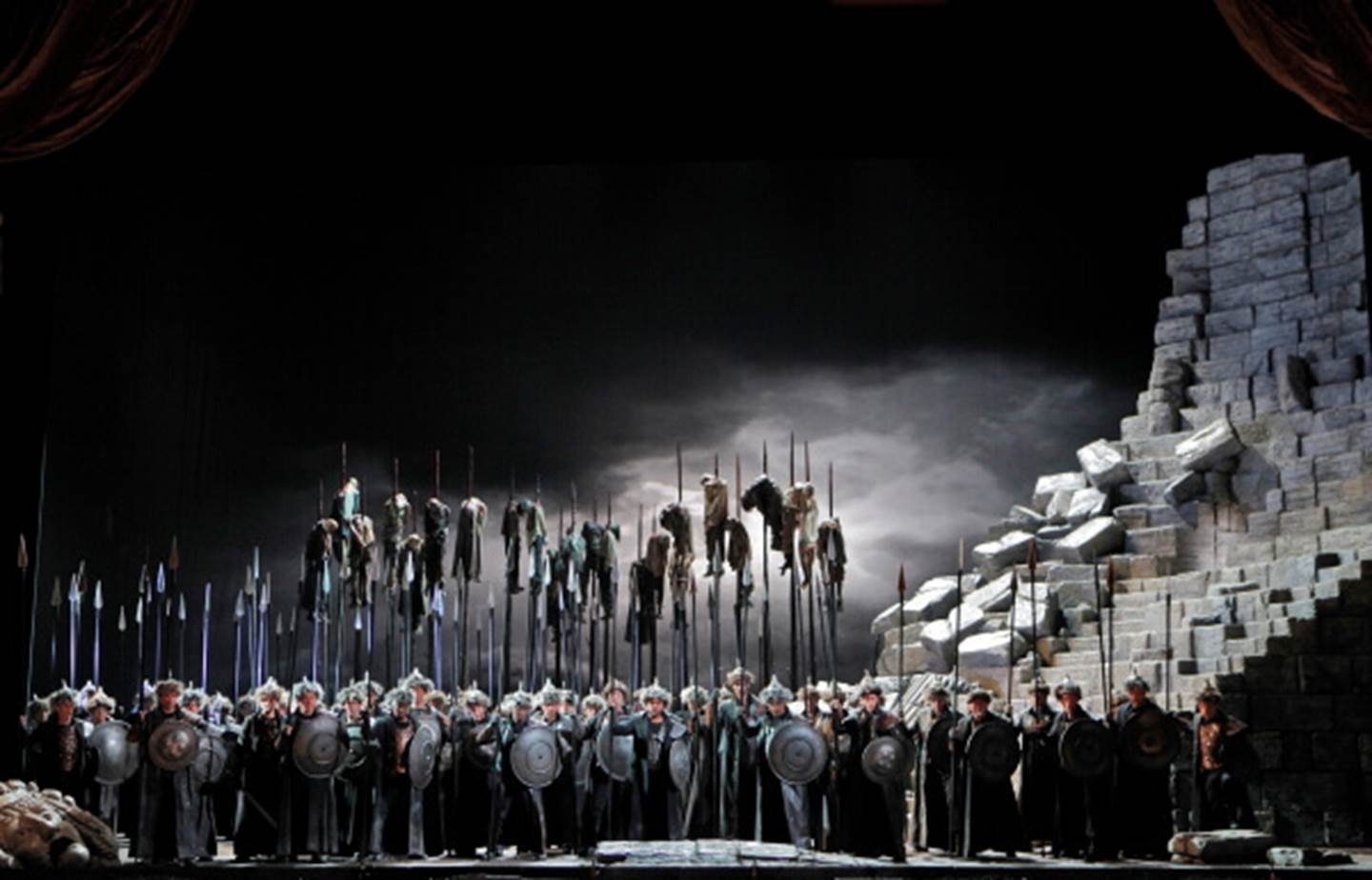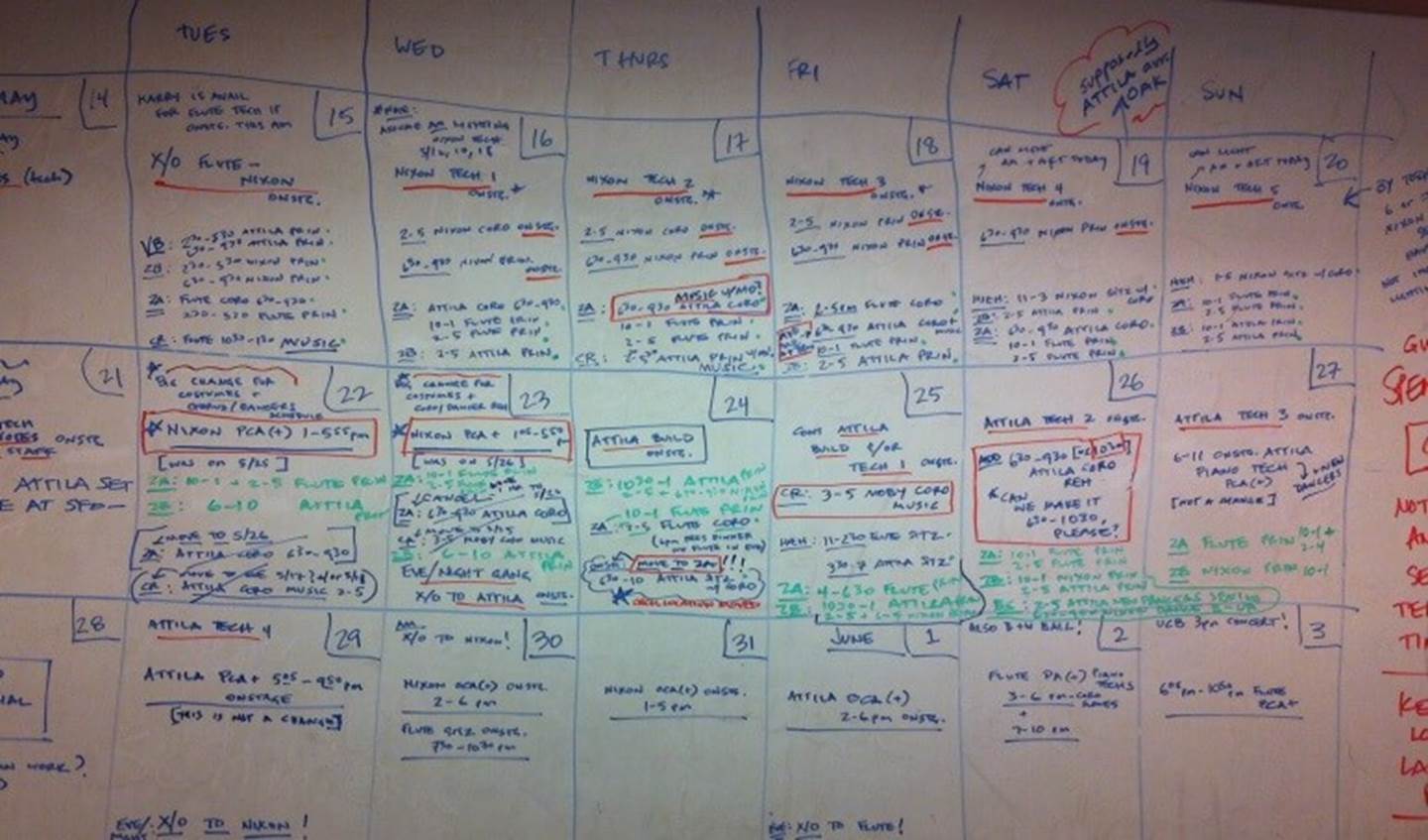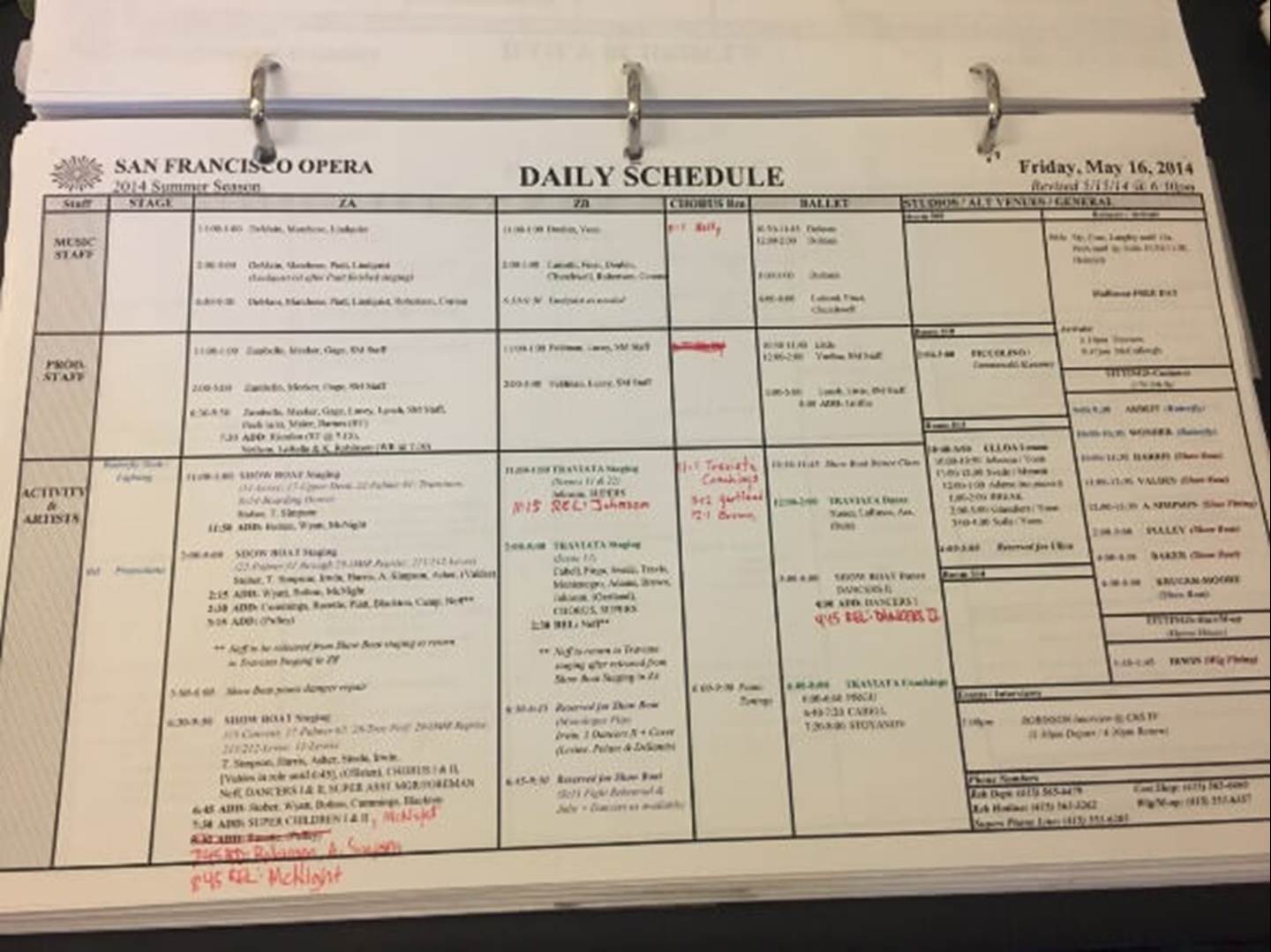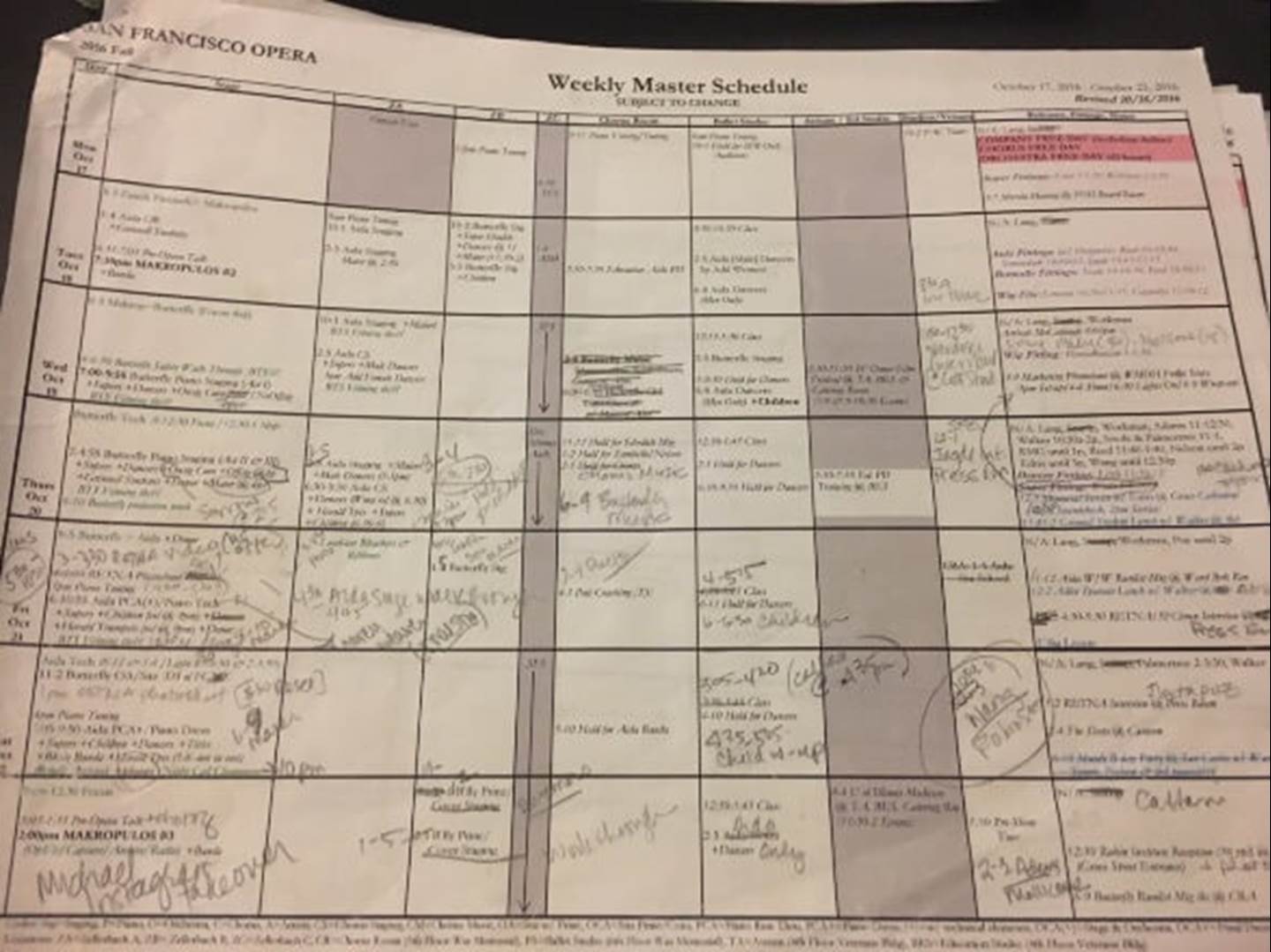Backstage with Matthew - February 13

Our jigsaw is put together by a very talented Rehearsal Department, headed by Rehearsal Department Director, Marin Venturi. Marin, who has been with the Company since 2009, oversees all the scheduling of the Company, organizing each day, each week, each month into a framework that allows for the best possible artistic product, respects the many disparate work rules of what can be done when, and makes most efficient use of the Company’s limited spaces and time. As you can see below, the schedules can be dense, detailed and constantly changing. The “Weekly Master” schedule gives a snapshot of a 7 day period, broken out by room and time. The daily schedule is the road map by which we get through each day, indicating where each artist should be at any given moment—not only in a rehearsal room or on stage but also in costume fittings, coachings, donor events, etc. And you can see from the handwritten changes how dynamic these documents are. New information is flowing in all the time and we have up to 20 versions of the schedule for different groups, all pulled into one master.
While scheduling is certainly a vital component to the Rehearsal Department’s duties, this team is about so much more than calendars. As Marin notes, the Rehearsal Department “puts a personal side to the mechanism of scheduling, ensuring that people feel like this is a family environment even though it could run the risk of becoming just a big machine.” They are the first face of the Company for our artists, with their offices situated immediately next to the stage door. The life of an artist is not always easy, being on the road for long stretches of time, away from family and often in a new, foreign city. The Rehearsal Department is the place where artists go to get information, to find a doctor, to get advice or snack on the world’s best homemade Rice Krispy treats. We want artists and visiting guests to feel taken care of and supported here and the Rehearsal Department does an incredible job to that end.
The Rehearsal Department works with all of our artists, and this includes children. Given the film industry, California has unusually robust labor laws protecting children working in entertainment, leading to complex requirements for studio schooling here on site depending on the hours a child works, as well as support through studio teachers. Marin and her staff oversee the administration of all the children performers at the Opera, helping to ensure that children have the most positive experience and one that doesn’t impede their schooling.
The list of touch points Marin and her team have with the process of staging opera is vast! The Rehearsal Department is in charge of supernumeraries (extras) casting, keeps track of what we call “critical factors”—the core logistics of an opera like the length, language, number of choristers, dancers, crew, etc. , and calls each artist by lunchtime (a “wellness call”) just to ensure they are, indeed, well to perform in the show that evening!
With her father being a professional football coach and her mother a professional clown, something exciting was in store for Marin’s future! Marin’s love of theater came from an elementary school theater group visit, a spark that set in motion a lifelong passion. Initially wanting to be a theater director, it was a technical internship at the Glimmerglass Opera Festival which opened the door to opera for the first time. The set designer, John Conklin, told the interns and apprentices that “there will always be a need for assistants and technicians” in reference to the theatre world, directors and designers, and that sentiment resonated: she realized that she was much more comfortable behind the scenes, and she has embraced that with a passion ever since. Positions in stage management and production management in Cleveland and Virginia taught her the ropes of backstage and gave her a robust understanding of how a production is put together. In Chicago she encountered her first full-scale rehearsal department and, after three years at Los Angeles Opera, there was no person better prepared to take on and create the current Rehearsal Department here in San Francisco. Her experience is vast and she is almost resigned now to accepting that opera’s not a new thing to her anymore!
A top-flight rehearsal department is adept at dealing with crisis and, with live theater being live theater, we have our moments. Marin recalls one in May 2012. Verdi’s Attila was part of the summer season and the production was on its way to us from Italy with tight timing. Sadly the shipping gods were not with us and it became painfully clear that we were not going to get the production into the US in time for rehearsals. The Company went into hyper drive, looking at options to rebuild the set, wait for it, or look at something more dire. But Marin and Jen Good, then Production Stage Manager, locked themselves into a small conference room for a long, uninterrupted day, and mapped out a stunning plan of action to re-work the entire summer rehearsal process of three operas, to get Attila rehearsed as late as possible. At the end of the day, the walls were filled with complex permutations stretched from floor to ceiling.
On the first day of rehearsal for every production, we have a ‘meet and greet’ for all of the artists, at the end of which Marin goes through the rules of the road. Her remarks are the stuff of legend, not least her admonition about asking for the schedule. With so many continuously moving parts, the specific daily schedule doesn’t get finalized until the evening before and artists have been known to wait with bated breath for it. Marin reminds the group that the schedule comes out between 6–8pm each day and, when she says “if it’s not out…” the whole Company responds on cue with a well-rehearsed “don’t ask!” The jigsaw isn’t quite yet finished.


